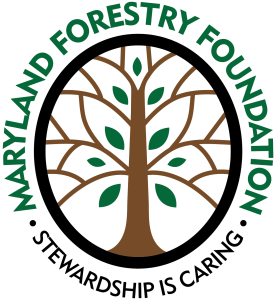The Economic Adjustment Strategy (EAS) for Maryland's forest industry, completed in 2021, is now in the process of being translated into tangible policy, programs, and projects. The Foundation's focus is on developing a strategy to align support for compensating forest landowners for the ecological benefits resulting from responsible forest stewardship.
Forests offer a multitude of benefits when managed sustainably. However, it is imperative to harmonize incentives for sound forest management to preserve vital ecological aspects such as air and water quality, habitat preservation, climate stability, and social and recreational values associated with healthy forest cover. The economic prospects of forestry extend beyond conventional forest markets and must be examined in the context of the diverse advantages attributed to thriving forests. The state's leadership in aligning these markets can unite various functions to cater to emerging markets, meeting the needs of both consumers and society at large. This alignment will foster new relationships and common objectives among the forestry community, emerging markets, and environmental stakeholders.
Specifically, the Foundation's objectives involve redefining the forestry sector to encompass the holistic management of forest ecosystems and aligning existing and potential incentives for responsible forest stewardship. This approach can result in substantial support for future public investments in forestry, with a focus on regulatory, tax, market, and social incentives aimed at promoting benefits related to water quality, air quality, carbon sequestration, recreation, habitat preservation, energy generation, and timber production.
Our ongoing initiatives include:
- Developing a white paper that explores the alignment of existing government and market incentives, with a focus on economic benefits for forest landowners who contribute to the preservation of forests.
- Hosting a stakeholder conference in the Fall of 2023 to facilitate discussions and knowledge-sharing regarding emerging markets that incentivize responsible forest management.
- Crafting a series of policy and program recommendations that will be widely disseminated through web platforms, webinars, and planned discussions to disseminate the emerging alignment strategy.
This project will emphasize the use of stakeholder social networks, which have been underutilized as a tool for outreach in the forest sector across all levels within the state. The forest community and its associated businesses and organizations have traditionally maintained a conservative culture, often concentrating on cost management as a primary focus. As a result, innovation efforts have primarily revolved around process improvement rather than information dissemination. However, with growing public awareness, the involvement of decision-makers, and the engagement of economic stakeholders, a shift beyond the market-oriented approach outlined in the recent EAS Report will be necessary to sustain landowner involvement and competitiveness. Innovation in areas such as information dissemination, outreach, ecological services, and traditional forest products will be essential. Consequently, the management of innovation within Maryland's forestry culture will necessitate a significant transition toward embracing the future bio-economy.
The initial funding for this initiative has been provided by the Rural Maryland Council.









